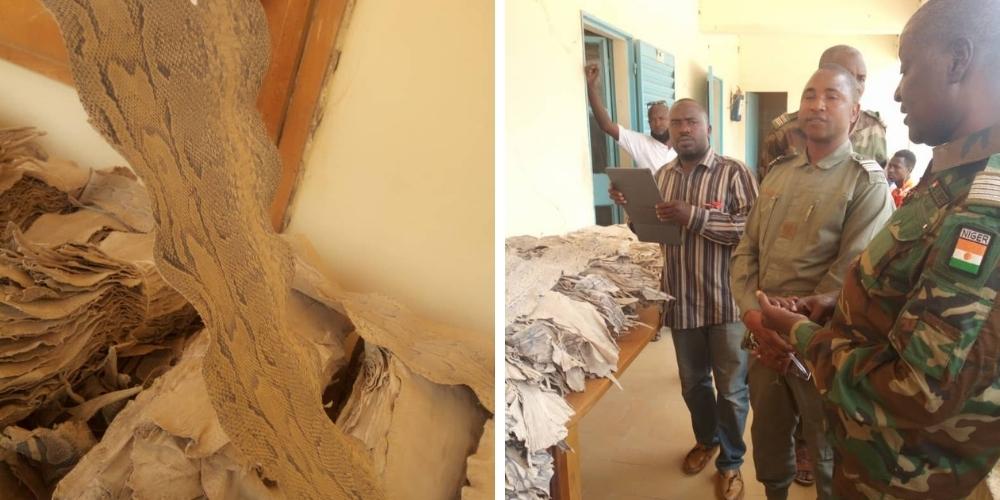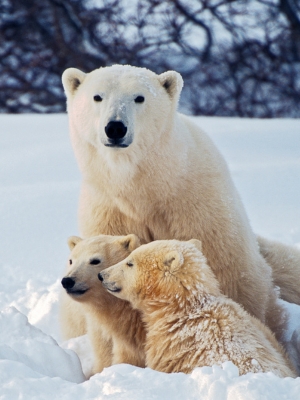On March 10, 2022, Niger authorities seized 1,700 python skins in the Diffa Region of eastern Niger, which sits on the border with Nigeria and Chad.
Agents of the Niger environmental service arrested the accused trafficker – a Chadian national – after he was unable to produce required documents for possession of the python skins, which are from species listed in Appendix II of CITES. The accused had concealed his cargo inside cow skins, hoping to deceive law enforcement agents, which suggests that he was fully aware of the illegality of his act.
After examination, it was found that the skins belonged to several species of pythons, most of which are protected by CITES and categorized as Endangered and Critically Endangered by IUCN.

Legislative Reforms Mean Tougher Sentencing
In 2019, Niger initiated reforms to its legislation. These reforms have resulted in the adoption of several pieces of legislation, including the CITES Law, which toughens the punishment for those convicted of violating wildlife protection laws. Legal proceedings initiated against the accused trafficker by the Public Prosecutor in collaboration with the environmental services of Niger will use this new legislation.
According to IUCN, three quarters of python species are in danger of extinction due to hunting, habitat loss, expansion of mechanized agriculture, and use of chemicals to control insect pests. As a result, they are among the most endangered species in Africa. This seizure by Niger authorities demonstrates the need for enhanced efforts to protect pythons and other species in the region.
Born Free USA Supports Law Enforcement in Countering Wildlife Crime
Born Free USA is proud to have played a role in this work. In January 2020, we conducted a threat assessment mission to Niger, in which we surveyed the state of wildlife crime in Niger and met with stakeholders to discuss their needs and gather input. We also led enforcement trainings in Niger for customs officers in December 2020 to help officers better identify trafficked wildlife and wildlife parts and bring traffickers to justice. While arrests and seizures cannot bring animals back, removing these items from the market and stopping traffickers is extremely important for clamping down on wildlife crime.
Keep Wildlife in the Wild,
Marius

 Dear Reader,
Dear Reader,